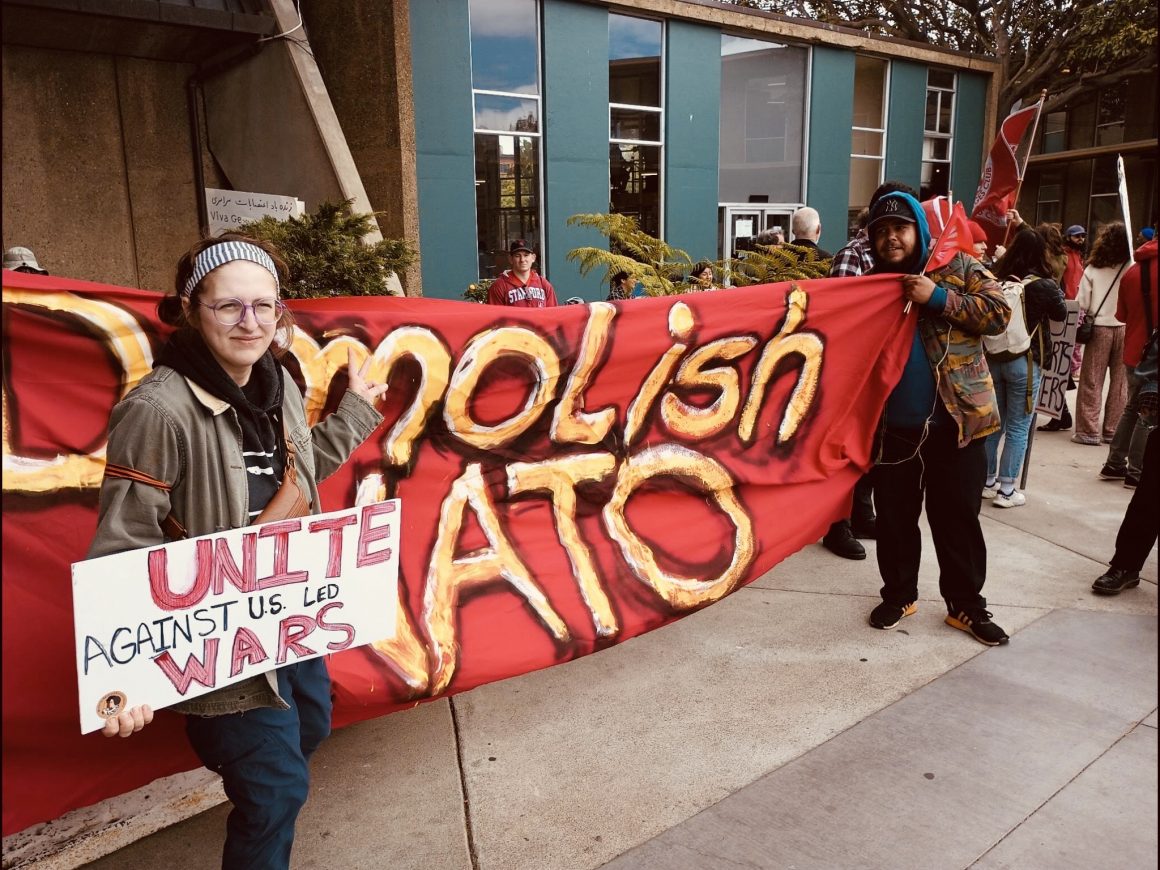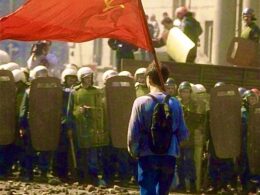Lenin wrote that “The younger the socialist movement in any given country…the more resolutely the workers must be warned against the bad counsellors who shout against ‘overrating the conscious element.’” Even though the USA’s socialist movement is technically quite old, it might as well be as young as it was in Lenin’s time. Because the American communist movement got virtually destroyed by McCarthyism, then by the war against the Panthers. It’s now trying to rebuild itself, and regain the mainstream status it used to have. And the fact that the Democratic Party gained a vast amount of influence over the movement after the USSR’s fall, effectively turning the parts under its control into wings of the party, has made those same actors Lenin warned against into significant threats to this rebuilding effort.
These bad counselors are making the same argument today they made back then, now applied to the element within American politics that we should consider the most conscious: those within the principled part of the anti-imperialist movement. The part that’s pro-Russia, or at least not anxious to disavow Russia’s operation while speaking out against NATO like so many on the left are. They’re the element that’s most readily come to anti-imperialist consciousness, without being held back by the ideological blocks to gaining this consciousness which exist within so many minds on today’s left.
The phenomenon I’m speaking to has been described by the authors of the paper A Worldwide Anti-Imperialist Left: Why it is Needed, and What it Must Do:
In the West, those parties that identify as “Left,” headed by the allegedly left-leaning US Democratic Party, almost unanimously endorse the US-led proxy war on Russia. Further confusion arises because many governments of the Right, such as India, Saudi Arabia, and Turkey, actively oppose sanctions, promote alternative trading relations to those hitherto imposed by the USA, and insist that Russia’s legitimate security concerns be given due consideration. This has led many in the nationalist wing of Russian politics to conclude that the interests of their country require alliances with the parties of the Western Right–notably the Trumpist Republican Party. Conversely the Western “Left” parties justify their support for NATO’s war aims as necessary to defeat Right wing forces, with whom they lump the current Russian government.
This describes the broad rationale behind why the left has decided not to be principled on anti-imperialism, namely that it views adopting such principles as synonymous with helping reactionary politics. But the nature of the crisis the left has created for itself is more extensive than what can be found in these instances of leftists outright supporting NATO, and the ideological roots of the problem go deeper than what can be summed up in a single sentence. It’s not just many of the “progressive” orgs that have failed to become assets for the anti-NATO movement, it’s also plenty of the Marxist ones. Because a common decision on the part of imperial center Marxists is to only oppose NATO in theory, not in practice.
There’s been an impulse among them to disavow Russia’s operation in Ukraine at the same time that they denounce NATO, acting like U.S. hegemony isn’t the globe’s primary contradiction and like Russia isn’t combating this contradiction. (Because this point is so hard to argue against, these leftists tend to rely on the argument that Russia is an imperialist or fascist state, which depends on an ahistorical analysis and on anti-Russian psyops.) As well as an impulse to focus on the contradictions within the imperial center’s anti-imperialist movement, more than the far more important contradiction this movement is fighting against.
The tendency among these leftists is to look for whatever excuses they can find not to become serious about challenging U.S. imperialism. The recent development that expanded how many on the left share this impulse was Russiagate. The core of the left opportunists have always been glad to reject anti-imperialism for the sake of appeasing the Democratic Party, but with Russiagate, an additional element got brought towards the opportunist stance as well. This is the element that wasn’t part of that core opportunist base, but got newly involved in politics when they got partly radicalized by joining the Bernie Sanders campaign.
After the idea of taking over the Democratic Party proved untenable, they were forced to follow either the reformist path (which includes both working within the party directly and tailing it from Democrat-adjacent outside orgs), or the revolutionary path, the path that’s fully independent from the Democrats. Many of these newer active leftists became principled Marxist-Leninists, and wholly broke from the Democratic Party. But many others instead followed their leader, and chose the opportunist option. And the latter were able to be won over because of the manipulative power of the Russiagate psyop.
When these individuals entered into the left’s organizing and discourse spaces, they encountered an environment where the Democratic Party and its narrative agents were able to exert great pressure in favor of their anti-Russian stance. Russiagate was a conspiracy theory that its propagators normalized by manufacturing social proof, where people become inclined to believe something simply because others also believe in it. The constant affirmations of the conspiracy’s founding lies—that Russia is seeking to influence U.S. politics, that Trump and the GOP are Putin’s puppets—didn’t succeed at swaying every newer active leftist. But they convinced enough of them for the discourse to be influenced in the long term. Because many in the Bernie movement embraced that narrative about how being pro-Russia is necessarily a right-wing stance, the reaction from the Marxists who view the Bernie movement as still the most revolution-compatible element decided that they had to disavow Russia. Which they justify by saying they simply don’t want to be construed as being “pro-Putin,” even though Z can’t honestly be called Putin’s war; it wasn’t his idea, he had to be pressured into it by Russia’s serious anti-imperialists after eight years of letting Kiev shell the Donbass.
There’s the essence of this ideological divide as it pertains to the American communist movement: one side believes the Sanders base continues to represent the greatest potential for spreading Marxist ideas, while the other recognizes that Russiagate has made this view outdated. At this stage, the element that’s most compatible with the anti-imperialist movement—and therefore with revolutionary politics—is a different one, a broader one. It’s made up of the communists who’ve already been brought towards the pro-Z, pro-multi tendency coalition stance; the libertarian types of conservatives who aren’t obsessed with the culture war, but have come to instead primarily focus on fighting imperialism, and therefore can be brought towards communism; and the quiet majority of apolitical people who don’t usually vote, due to their working class status making them alienated from our fraudulent democracy.
Only a minority of Americans are seriously invested in hating Russia, and they’re overwhelmingly made up of the liberals or the liberal-adjacent leftists. Most of the others only believe imperialism’s psyops at present because the empire’s propaganda is the sole side of the story they’ve been exposed to. If we show them the other side, most of them will ultimately come to the anti-imperialist stance. When liberals and imperialism-compatible leftists try to discredit this project of ours by saying that being pro-Russia is synonymous with aiding reactionaries, what they’re doing is warning against overrating the conscious element. Because these people who they call irredeemable reactionaries are, in actuality, the most advanced part of the masses. They’re the ones who recognize U.S. hegemony as the primary contradiction, and for that reason are not even reactionaries in practice. If someone has rejected the culture war, and is instead mainly focusing on the most important thing to be fighting against, then they’re at this stage an asset to the revolution. And many more of those who fit this description could become Marxists as the struggle continues to unfold.
————————————————————————
If you appreciate my work, I hope you become a one-time or regular donor to my Patreon account. Like most of us, I’m feeling the economic pinch during late-stage capitalism, and I need money to keep fighting for a new system that works for all of us. Go to my Patreon here.








